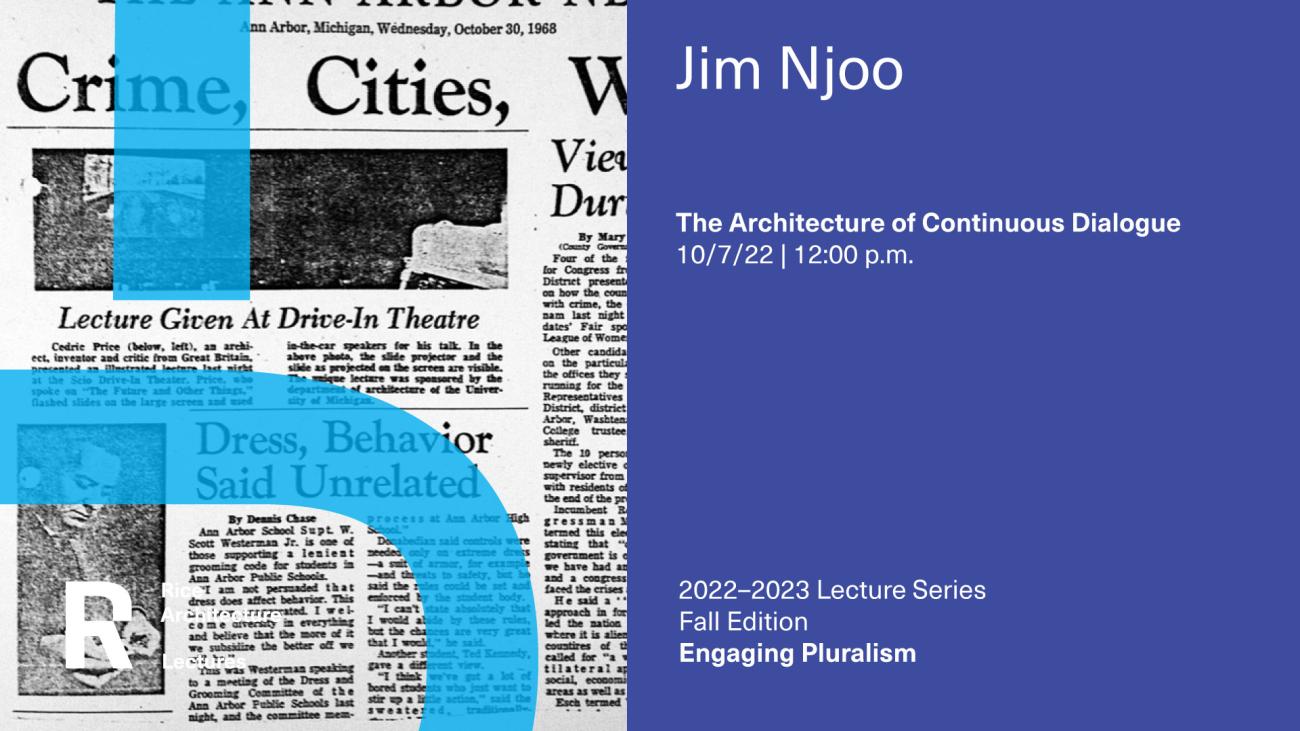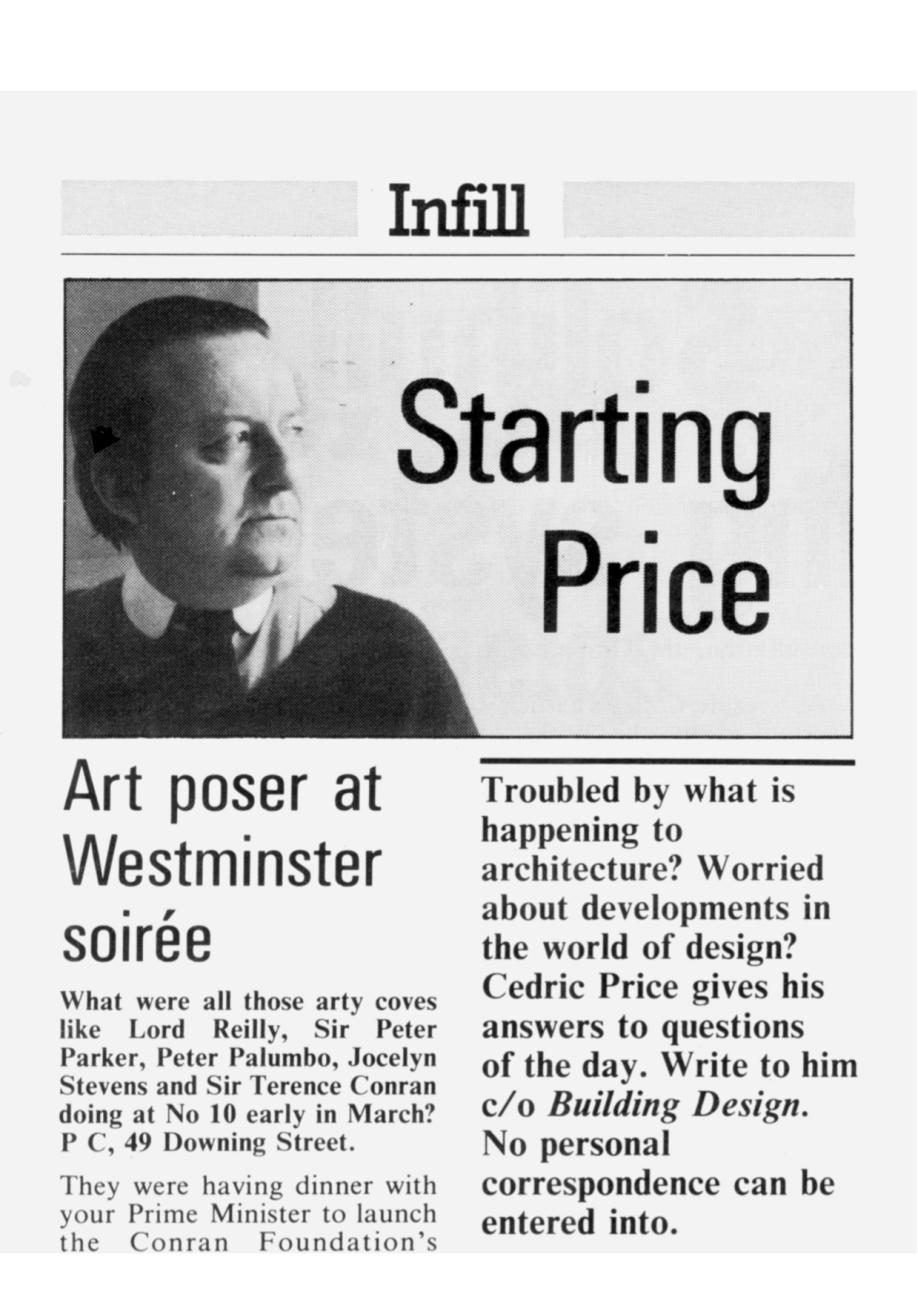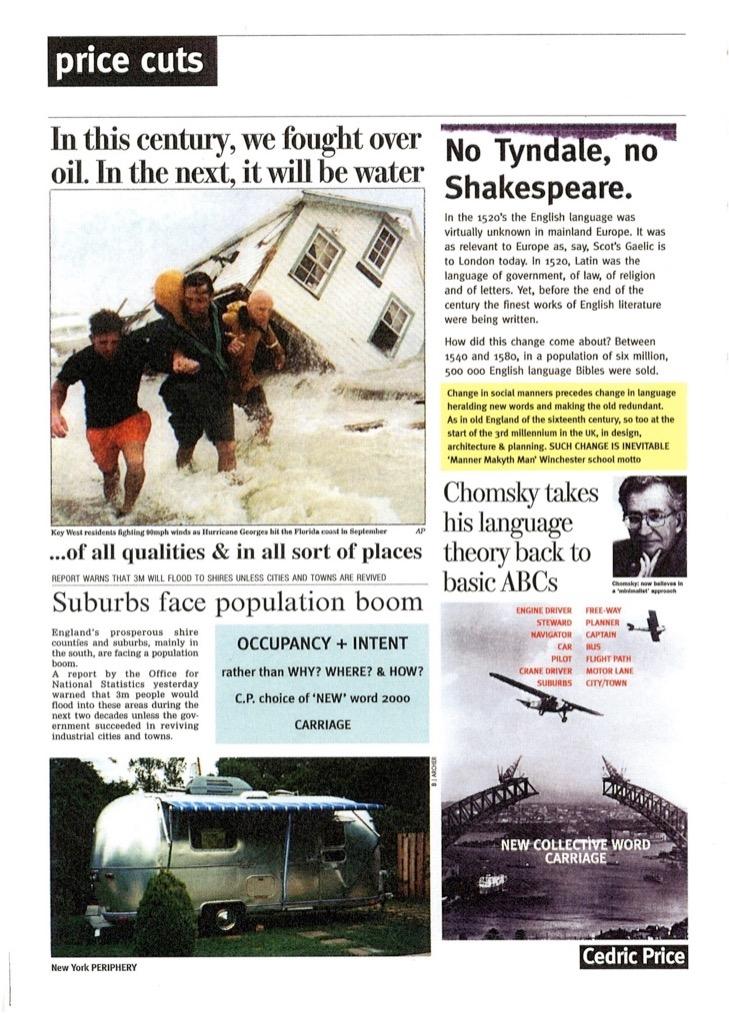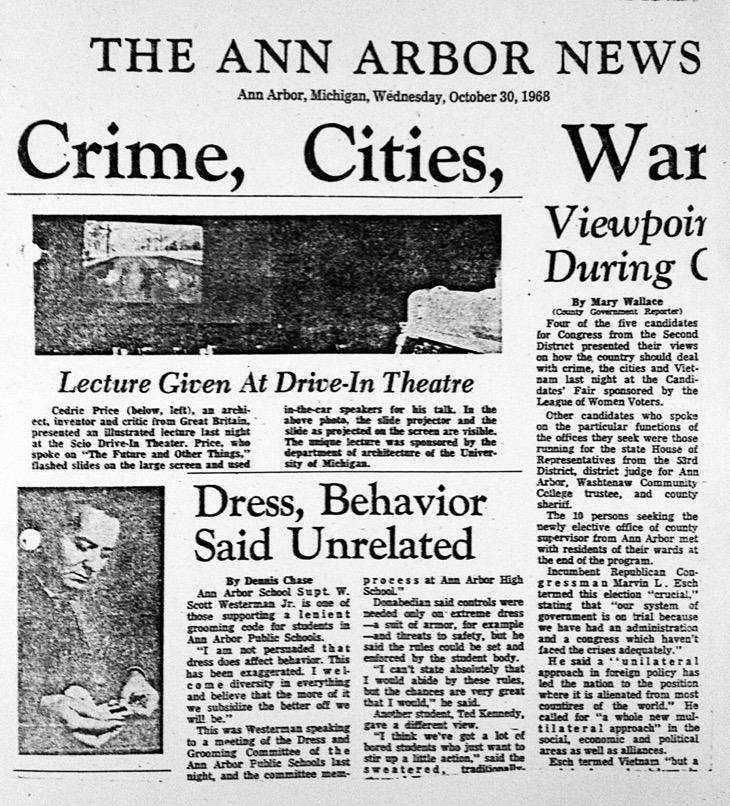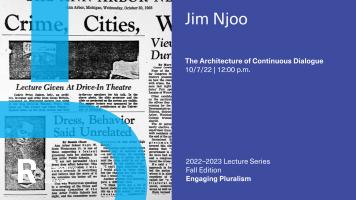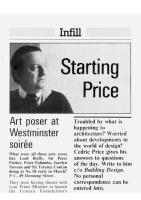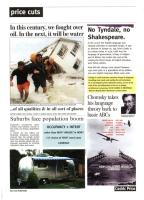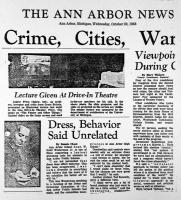For the radical British architect Cedric Price (1934-2003), architecture was above all a social art. Towards the end of his life, Price characterized architecture's essential role as that of "creating continuous dialogue". Although Price is most often remembered as the architect of such seminal projects as the Fun Palace or the Potteries Thinkbelt, he was also highly influential as a journalist, critic, writer, lecturer, educator, researcher, and polemicist. In this talk, I will discuss the creative entanglement of theory and practice at the heart of Price's deeply experimental and pluralistic approach to architecture.
Jim Njoo is an architect, associate professor at ENSA Paris-La Villette and adjunct professor at Rice Architecture Paris. He holds a PhD from Delft University of Technology, as well as graduate and undergraduate degrees from ENSA Paris-Belleville and Waterloo University, Canada. His research focuses on cultural and disciplinary transfers in architectural theory and practice, and has appeared in several books and journals, most recently, Mapping Chengdu: Stories // Territories // Traces;(2022), Architecture Thinking Across Boundaries: Knowledge transfers since the 1960s (2020), Clara #7: Architectural Criticism and Public Debate (2020), and Au tournant de l’expérience: interroger ce qui se construit, partager ce qui nous arrive (2018). He is a member of the GERPHAU Philosophy and Architecture Research Group and a former collaborator of OMA Rotterdam.
Engaging Pluralism
When ideologies and cultures collide, new ways of working with and living in the world emerge. As a form of political philosophy, pluralism draws upon this dynamic condition, promoting the coexistence of multiple approaches and worldviews. Yet in the context of compounding crises and unchecked inequality, this is far from a neutral position: it becomes a commitment to struggle and discourse. Drawing from a broad-ranging group of speakers, Rice Architecture’s annual lecture series, Engaging Pluralism, explores how architects and designers can work with friction, contradiction, and multiplicity to effect broader social, cultural, and environmental change. It is an all-school platform for reflecting on the possibilities and challenges of designing for a pluralistic society.
All lectures are free and open to the public and, unless noted otherwise, will be held in person in Farish Gallery, MD Anderson Hall, with a livestream component. In the event that COVID-19 circumstances prohibit in-person lectures, the series will be held virtually via Zoom. Each lecture has been submitted for AIA CES approval.
This lecture series is made possible through the generous support of the Betty R. and George F. Pierce Jr., FAIA, Fund; the William B. Coleman Jr. Colloquium Fund for Architecture; the Wm. W. Caudill Lecture Series Fund; and Rice Design Alliance (RDA), the public programs and outreach arm of Rice Architecture, which includes the generous support of its members and RDA Underwriters: Harvey | Harvey-Cleary; Tellepsen Family; Big State Electric; Brochsteins; CED Houston; MAREK; Turner Construction; and Walter P. Moore. Additional support is provided by the Texas Commission on the Arts.


